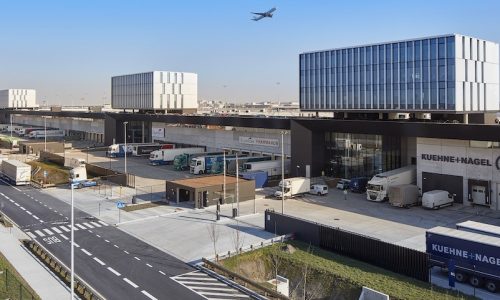Brussels Airport’s Stargate project for greener aviation has been launched officially.
Over the next five years the Belgian hub will be working with a consortium of 21 partners on some 30 projects to make aviation and airports greener and more sustainable.
Stargate, which received a €24.8m grant within the European Green deal, includes building a biofuel blending installation at the airport, electric ground handling material and testing an innovation that will make engine test runs much quieter.
Programme partners, including three European airports, airlines, mobility and knowledge institutes and local authorities, will develop innovations and initiatives for an accelerated transition to greener aviation.
Stargate partners Athens International Airport, Budapest Airport and Toulouse Blagnac Airport are already CO2-neutral for their own operations, as is Brussels Airport.
The airports will be able to exchange their knowledge and experience within Stargate, and what proves successful at Brussels Airport will also be rolled out and deployed at these hubs.
Brussels Airport chief executive Arnaud Feist said: “With Stargate we want to show, together with our partners, that a more sustainable aviation is possible, and that we want to take the lead in this.
“Through partnership and innovation, we want to address the climate challenges we are facing. Within the Stargate project, we will develop biofuels for aircraft on the airport’s grounds, make the ground operations more sustainable, and turn airports into intermodal hubs, where alternatives for the car are even more accessible.”
Stargate includes some 30 small and large projects, focused on three main areas:
- · a further decarbonisation of the airport operations,
- · improving the local environmental quality and
- · improving the modal split.
An increasing focus will be on electric taxing, electric ground handling material and ground handling material fuelled by hydrogen. Partner DHL has purchased the first electric ground handling equipment to test it in practice.
A blending installation for biofuel will be built at Brussels, making it the first airport in the world where kerosene is blended with biofuel on site.
This will allow a systematic increase in the proportion of biofuel. The airlines within Stargate, Brussels Airlines, TUI and DHL, will be the first to fly on this fuel.
A companion to this project is the development of an electric fuel truck and the collection of waste fats and oils that can be used for that biofuel.
The other partners in the consortium are Brussels Airlines, TUI, DHL Aviation, Engie Laborelec, Air Cargo Belgium, Skytanking, skeyes, To70, Lux Mobility, University of Hasselt, expertisecentre Erasmus UPT, IES R&D, Sopra Steria, Province of Flemish Brabant, Quatra, the Flemish Institute for Technological Research (VITO), NMBS and the Flanders Institute for Logistics.

